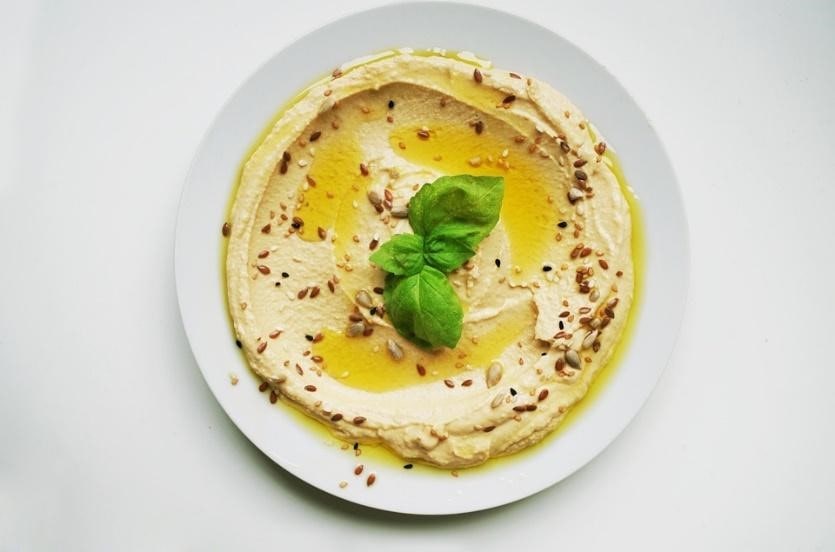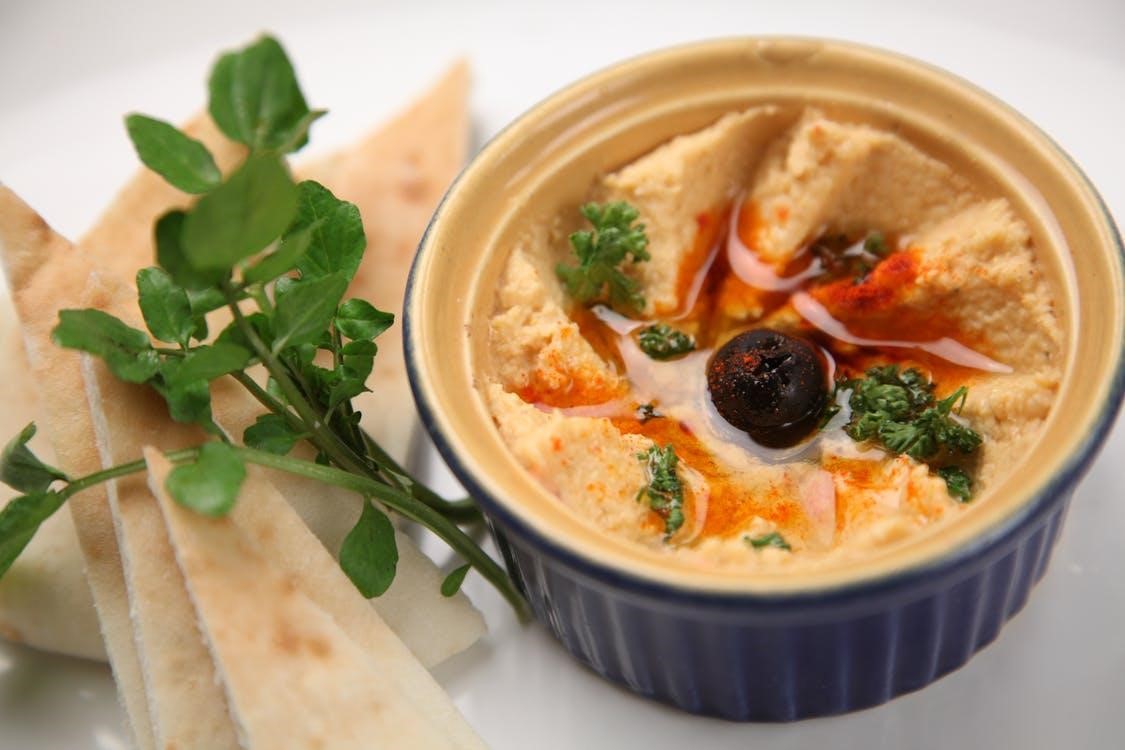
The History of Hummus, a Middle Eastern Staple

Hummus is a Middle Eastern delicacy that is devoured across the world. It is made primarily from chickpeas, and each country has its variations of this ancient food. It is mostly served as a snack or appetizer with pita bread; however, many enthusiasts enjoy it as a whole meal.
Many Israelis believe hummus is their creation, while other Middle East nations such as Lebanon argue against it. Egyptians claim that hummus is their invention, and on the other hand, the Greeks and Romans made various dishes out of it. Due to a lack of sufficient evidence, no one has won the who invented hummus war. Let’s take a look at the brief history of hummus and how it is used today.
Recommended Reading: Your Complete Guide to Israeli Food

Origins of Hummus
As mentioned, it is hard to pinpoint the exact location where hummus was invented. We all know that it was created somewhere in the Middle East.
Going back to the 13th Century, a medieval cookbook in Cairo mentioned the use of chickpeas (a basic ingredient in hummus) to create Hummus Kasa. However, the recipe used vinegar, and there was no mention of lemon or garlic, which are the other core ingredients of the hummus we eat today.
Despite the arguments concerning the invention of the popular dish, hummus has broken down barriers and is an important part of the Middle Eastern food culture. It will be at the heart of any Israeli, Arab or Lebanese dish you eat.
How it is Served
Hummus is normally served as an appetizer or a dip with warm and fluffy pita bread. You can expect hummus to be a part of a meze or accompaniment to other foods such as falafel and grilled chicken.
You can also expect a variety of garnishes on hummus. However, one thing you’ll find common is the drizzle of olive oil. People prefer to have chopped vegetables such as cucumber and tomato on top and herbs such as coriander and parsley. Moving outside the Middle East, you’ll find hummus being served with crackers or tortilla chips!
In Israel, you’ll rarely find a meal without hummus. It is vegan, and can be eaten with meat meals or dairy meals (according to Jewish dietary laws of Kashrut, meat and dairy foods are not mixed in the same meal) . Mizrahi Jewish immigrants brought their dish variations, as they ate hummus with fried eggplant and boiled eggs. You can find traditional hummusiya restaurants in Israel serving some of the best quality Hummus that you’ll ever eat in your life.
People claim hummus to be the unofficial national dish of Israel, such is the popularity of the food. The entire Israeli population devours it, and you’ll even find high-end restaurants serving hummus as a part of their several-course meals. In western countries such as Canada and Australia, the Arab population has been serving quality hummus to the locals as part of other dishes such as tabbouleh, kibbeh, and falafel.
Recommended Reading: Delicious Israeli Dips Besides Hummus

Nutritional Benefits
As mentioned, chickpeas are the main ingredients in hummus which is full of dietary fiber, protein, manganese, and vitamin B6. The nutritional content varies with the hummus recipe. Tahini and olive oil also provide added nutrition. For vegetarian and vegan people, hummus is an excellent source of protein. Olive oil used in hummus has powerful antioxidants that have anti-inflammatory benefits.

Furthermore, hummus has certain properties that can help control your blood sugar level. Chickpeas have a low glycemic index, which means that they are slowly digested and absorbed into the bloodstream, contributing to a more balanced rise and fall in blood sugar levels.
Recommended Reading: 5 Reasons You Should Eat Like an Israeli
Regardless of where it is made, hummus is something you need to try once in your life. Not the one you get in the supermarket, but the warm delicacy you’ll find in Middle Eastern restaurants. Next time you visit Israel, do go to the local hummusiya to experience the popular dish.
Recommended Reading: Restaurants in Tel-Aviv You Must Try
About the Author
David is a Hebrew linguistic expert and an instructor at Ulpan-Or, a leading Hebrew learning institution where individuals can learn Hebrew online with native Israeli teachers. In his free time, he regularly writes about the Hebrew language, particularly languages in general and Israeli culture.
Ulpan-Or is an online Hebrew learning platform for people from all over the world including the USA, Australia, Canada, and the UK. Whether you’re starting your Hebrew journey, or you want to become more fluent, Ulpan-Or’s Hebrew digital courses are created to suit people from all walks of life.
For more details on Ulpan-Or’s Hebrew language courses, Hebrew learning for Israel immersion, or self-study courses, check out the website today!



